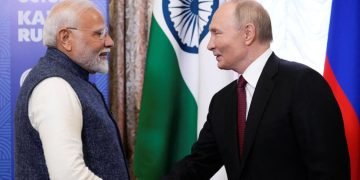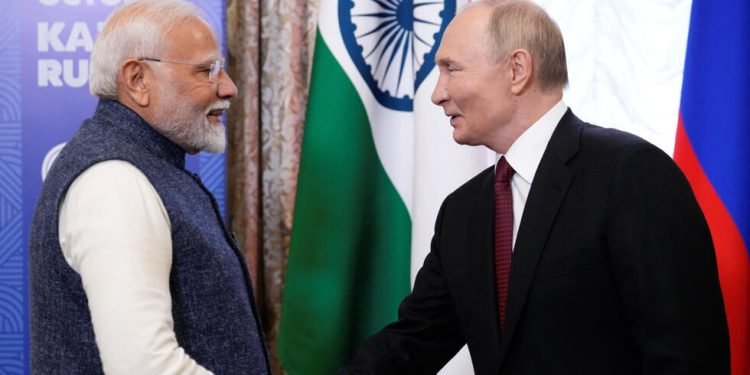Russian President Vladimir Putin recently hosted leaders from the Global South at the BRICS summit, seeking to strengthen alliances and present a unified front against the dominance of Western powers. The summit, held virtually, featured representatives from Brazil, India, China, and South Africa—nations that, alongside Russia, make up the BRICS bloc. This year’s focus was on promoting a multipolar world order, reducing dependence on Western financial systems, and bolstering economic cooperation among member states and other emerging economies.
The timing of the summit underscores Putin’s strategy of consolidating ties with countries from the Global South amid ongoing tensions with Western nations over the war in Ukraine. Despite facing heavy sanctions and diplomatic isolation from Europe and the U.S., Putin is pushing to demonstrate that Russia still holds significant influence, particularly among non-Western countries.
Strengthening Economic Partnerships
A central theme of the BRICS summit was deepening economic collaboration between member countries, which together account for about 40% of the world’s population and a quarter of the global economy. The BRICS nations reiterated their commitment to expanding trade and investment, with a focus on using their own currencies in bilateral transactions to reduce reliance on the U.S. dollar.
This drive toward “de-dollarization” is a key component of the BRICS agenda, aimed at creating an alternative global economic structure less vulnerable to Western sanctions. Putin and his Chinese counterpart, Xi Jinping, emphasized the importance of developing financial mechanisms that could help buffer member countries from economic pressure exerted by Western financial institutions.
Energy cooperation was also high on the summit’s agenda. Russia, a major energy supplier, is seeking to increase oil and gas exports to BRICS members, particularly China and India, as European markets have significantly reduced their reliance on Russian energy.
A Global South Coalition
The summit also highlighted the participation of several leaders from the Global South, including countries in Africa, Latin America, and Southeast Asia. These nations are increasingly seen as strategic partners for Russia and the BRICS bloc as a whole, with many of them voicing frustration over the outsized role the West plays in global governance and trade rules.
By welcoming these leaders, Putin aims to extend Russia’s influence beyond the core BRICS membership and position the bloc as a leading voice for developing nations on the global stage. Issues such as food security, sustainable development, and climate change were discussed, with BRICS leaders pledging to support economic growth in the Global South through increased trade, technology transfer, and infrastructure development.
For many of these nations, the BRICS summit offers an alternative to the Western-dominated G7 and NATO, and a platform to advocate for greater equality in global decision-making. South Africa’s President Cyril Ramaphosa emphasized the need for reforms in international organizations like the United Nations and the World Trade Organization, where developing countries often feel underrepresented.
Shaping a New World Order
One of the key takeaways from the summit was the bloc’s ambition to shape a new, multipolar world order that challenges the current Western-centric system. Putin and other BRICS leaders stressed the importance of regional powers playing a more prominent role in global politics, reducing the concentration of power in the hands of Western countries.
This vision of a multipolar world aligns with Russia’s broader foreign policy strategy, particularly as it faces ongoing sanctions and political isolation from the West over its actions in Ukraine. By strengthening ties with BRICS members and the Global South, Putin is working to create a global coalition that can counterbalance Western influence in international affairs.























